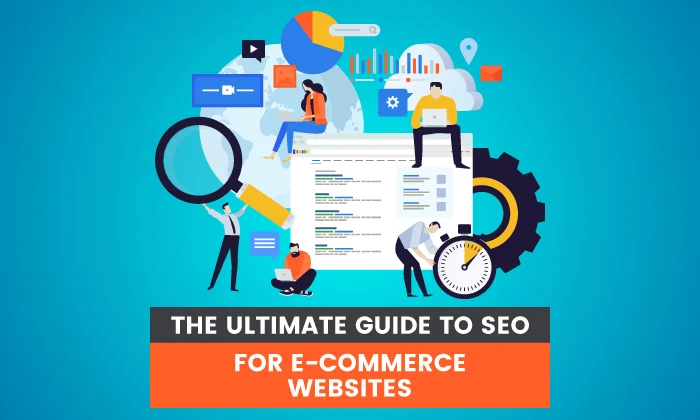SEO optimisation in e-commerce the art of science

We’ve added a twist to the definition of search engine optimisation (SEO) by explaining it as the scientific art of optimising your website around certain keywords to rank higher in search results.
Why scientific art? We know a lot about the technical aspects of SEO, but optimising an e-commerce site requires creative thinking, focusing on the user experience and design perspective.
But optimising a website ultimately means one thing – it’s about getting the best possible result for the target keyword.
Google’s search engine aims to help the user
Google’s search engine is used in more than 75% of the cases where a user wants to find answers to questions on the internet, making it the clear leader among all search engines. For this reason, it is important that SEO is optimised in a Google-friendly way.
Google aims to rank search results that answer all the user’s questions so well that they do not have to go back to Google to get another answer.
How can you help users?
You can help users while also improving your business’s position in Google search in a variety of ways, such as:
By revealing the most complex answers to the most varied questions related to a topic relevant to your business. Include information from different perspectives on the website, creating a broad bubble of your industry;
using high quality images and videos to describe and explain the content in detail, both to the user and to Google searchers;
providing the best user experience by making the website fast and mobile-friendly, and by focusing on the user experience;
getting people talking about you, both literally and figuratively – by adding testimonials, sharing information by word of mouth, linking to your website (backlinks), etc.
Below, we’ll share 8 useful tips to help you rank higher in search results with SEO optimisation for your eCommerce website!
Keyword research is the cornerstone of e-commerce SEO optimisation
Never skip this step! Without keyword research, SEO optimisation will be just a guess and will not guarantee any success for your eCommerce website. Throw your intuition and your confidence to the side, because this time it is bound to disappoint. Remember that the keywords you have in mind will not always be what users are actually searching for on a daily basis.
If you do your keyword research wrong, you will face one of the unwanted scenarios:
If you choose keywords that have too much competition, you will lose the chance to rank on the first page of Google’s search engine;
choosing keywords with too few searches will result in no traffic to the website, which will have a negative impact on attracting new customers.
You will agree that none of these situations are desirable, which is why keyword research in an ecommerce context is so important. This will ensure that you are targeting keywords where position and competition is easily identifiable, giving you the opportunity to use keywords that have a decent search volume and a high conversion rate.
Choose the best possible keywords!
Choosing keywords is more than just looking at the competition or the number of searches per month. To choose the best possible keywords, also consider the buyer’s intent. This means understanding where the buyer is in their journey when using a keyword.
For example, if a user searches on Google for the keyword ‘good laptop’, this means that they are still in the search phase, exploring options and offers. Then, if the user searches for a specific brand, he has already done his research and wants to find out which vendor offers the product.

